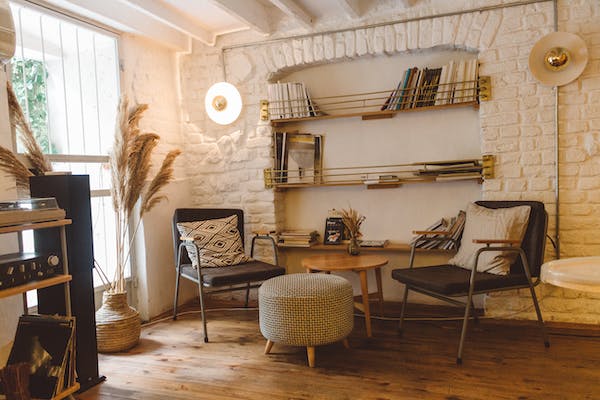Maximizing Your Investment: How to Flip Houses Successfully
Are you tired of watching HGTV and dreaming of flipping houses? Do you want to turn your passion for real estate into a profitable business venture? Look no further! In this blog post, we will explore the ins and outs of successfully flipping houses. From finding the right property to maximizing your return on investment, we'll provide tips and tricks that will set you up for success. So grab a cup of coffee, sit back, and let's dive into how you can maximize your investment with successful house flipping strategies.
What is House Flipping?
flipping houses is when you buy a property, usually below market value, with the intention of selling it quickly for a profit. The key to success is finding properties that are in need of repairs and renovations that you can do yourself or with the help of a team of contractors.
Once you have found the perfect property, it is important to come up with a realistic budget for the repairs and renovations that need to be completed. Once the work is done and the property is back on the market, it is vital to price it correctly in order to maximize your profits.
How to Get Started with House Flipping
If you're looking to get started in the world of house flipping, there are a few things you need to know. First and foremost, you need to have a clear understanding of the market you're operating in. What are homes selling for in your area? What is the average price point for a fixer-upper? Knowing these things will help you determine how much you can realistically spend on a property and still make a profit.
Once you have a handle on the market, it's time to start looking at properties. When assessing a potential flip, pay close attention to the condition of the property and the necessary repairs that will need to be made. It's important to have a realistic idea of what the final product is going to look like and how much it will cost you to get it there.
Once you've found a property you think has potential, it's time to start negotiating with the seller. Remember, your goal is to buy low and sell high, so don't be afraid to haggle over price. If possible, try to get the seller to cover some or all of the repair costs; this will further increase your profits when you do eventually sell.
Once you've bought the property, it's time to roll up your sleeves and get to work! Depending on the scope of work required, you may need to hire some contractors or other professionals to help get the job done. Again, your goal is to keep costs as low as possible
Common Mistakes to Avoid when House Flipping
There are a number of common mistakes that newbie house flippers make that can eat into their profits and cause them to lose money on a flip. Here are some of the most common mistakes to avoid:
1. Not Doing Your Research – House flipping is not a get rich quick scheme. You need to do your due diligence and research the market, trends, neighborhoods, comparable sales, etc. before deciding to buy a property to flip.
2. Overpaying for the Property – Don’t get emotionally attached to a property and overpay for it. Remember, you are buying it as an investment, not a home for yourself. Stick to your budget and don’t overspend.
3. Underestimating the Repair Costs – Once you own the property, you will need to make repairs and updates before putting it back on the market. Be realistic about the costs of these repairs and factor them into your budget. Don’t underestimate what it will take to get the property “market ready” again.
4. Not Staging the Property – Once the repairs are complete, it is important to stage the property so potential buyers can see its full potential. This means furnishing it in a way that is appealing and inviting, and making sure any clutter is removed.
5. Not Marketing the Property Properly – In order to sell your flipped house quickly (and for top dollar), you need to market
Researching the Local Market and Property Values
Before you can start making money by flipping houses, you need to do your homework and research the local market and property values. This will help you determine how much you can realistically expect to make on each flip.
The first step is to find out what comparable homes in the area are selling for. You can do this by looking at recent sales data or speaking with a real estate agent. Once you have an idea of what similar properties are worth, you can start to look for properties that are undervalued.
Keep in mind that it takes time and effort to find these deals, so be patient and persistent in your search. It’s also important to have realistic expectations; even if you find a great deal, there’s no guarantee that you’ll be able to sell the property for a profit.
If you want to maximize your chances of success, it’s worth taking the time to learn as much as you can about the local market and property values before diving into the world of house flipping.
Finding Deals and Negotiating Prices
If you're looking to flip houses successfully, one of the most important things you can do is find good deals. There are a few ways to do this:
-Keep an eye on your local real estate market and look for properties that are undervalued. This could be due to a variety of reasons, such as the owner being in a hurry to sell or the property being in need of repair.
-Get to know your local real estate agents and let them know what you're looking for. They may be able to help you find good deals that aren't yet on the market.
-Look for foreclosure listings. These can be great deals, but remember that you'll likely have to put more money into repairing the property than you would with a traditional sale.
Once you've found a few potential properties, it's time to start negotiating prices. If you're working with a real estate agent, they will likely do this for you. However, if you're working directly with the seller, there are a few things you can do to try to get the best price possible:
-Make an initial offer that's lower than what you're actually willing to pay. This leaves room for negotiation and shows that you're not desperate to buy the property.
-Be prepared to walk away from the deal if the seller isn't willing to budge on price. There are other deals out there, and it's not worth overpaying
Estimating Costs of Repairs and Upgrades
The costs of repairs and upgrades will vary depending on the scope of work and the condition of the property. A good rule of thumb is to budget for 1-2% of the purchase price for minor repairs and 3-5% for major renovations.
It is important to get a realistic estimate of the costs before making an offer on a property. Once you have an idea of what needs to be done, you can research comparable properties in the area to see how much they have sold for after similar renovations. This will give you a good baseline for estimating your own potential profits.
If you are working with a limited budget, prioritize the most important repairs and upgrades first. For example, if the property needs a new roof, that should be your first priority. deferred maintenance items like this can quickly become expensive problems down the road.
Financing Options for House Flipping
There are a number of ways to finance your house flipping project. The most common is to take out a loan from a bank or other financial institution. However, there are a number of other options available, including private loans, home equity loans, and hard money loans.
Private Loans: Private loans are usually obtained through family, friends, or other personal connections. These loans typically have lower interest rates than traditional bank loans, but they may be more difficult to obtain.
Home Equity Loans: Home equity loans allow you to use the equity in your home as collateral for a loan. These loans typically have lower interest rates than traditional bank loans and can be easier to obtain if you have good credit. However, if you default on the loan, you could lose your home.
Hard Money Loans: Hard money loans are typically provided by private investors or lending companies. These loans often have higher interest rates than traditional bank loans but can be easier to obtain if you have good credit and a solid business plan.
Strategies for Selling Your Property Quickly
If you're looking to sell your property quickly, there are a few strategies you can use to make it happen. One option is to work with a real estate agent who specializes in flipping houses. They'll have a network of potential buyers and will be able to help you price your home correctly.
Another strategy is to list your home on a website like Zillow or Trulia. This will give it exposure to a wider audience and may help you attract buyers who are specifically looking for fixer-uppers.
Don't forget the power of word-of-mouth marketing. Talk to your friends and family about your plans to sell, and ask them to spread the word. You never know who might be in the market for a new home!
Conclusion
Flipping houses can be a profitable undertaking, but it requires careful planning and research. Understanding the housing market, learning how to finance renovations, and navigating the legal paperwork are all important components of flipping houses successfully. Successful house flippers must also take time to find good deals, plan carefully for budgeting renovations costs, and make sure that they have an exit strategy in place before beginning work on any property. With some hard work and dedication, anyone can flip a house into a profitable investment!






